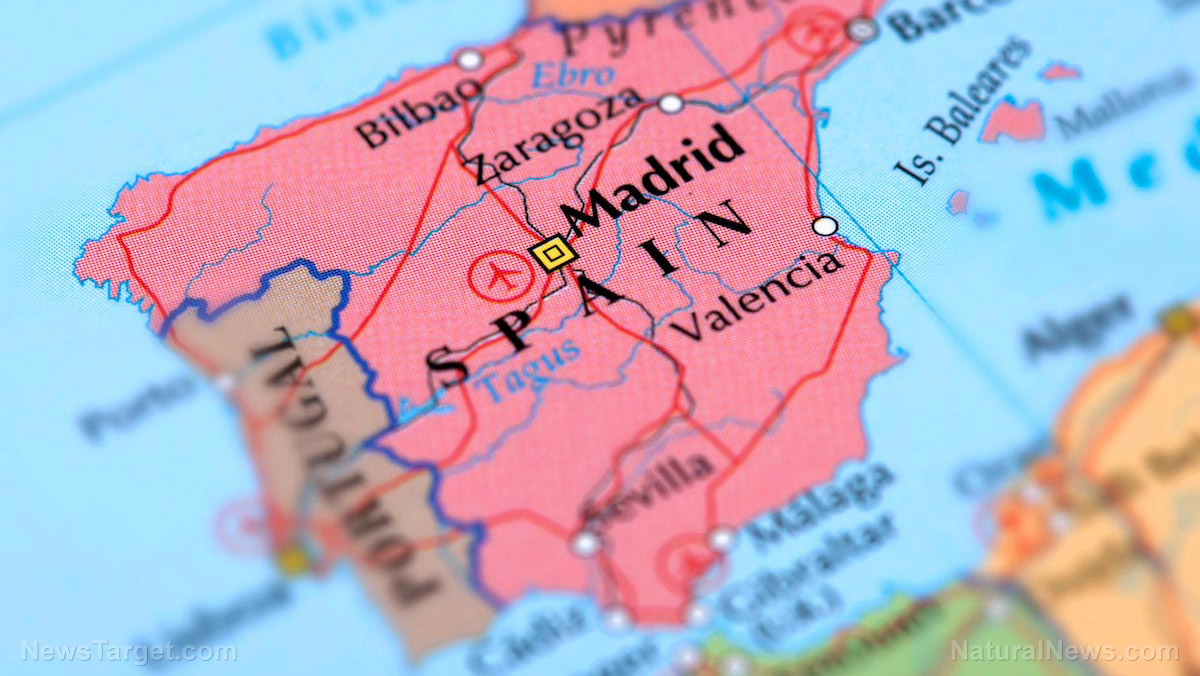 Parler
Parler Gab
Gab
The globalists want everyone who is not them to starve in darkness
The new restrictions will reportedly remain in place through November 2023, though Isabel Díaz Ayuso, the populist president of Madrid, has already indicated that her city will not be complying. "[This] lays out a series of measures to save energy and use it more efficiently, which are urgent and necessary when it comes to reducing energy consumption in general, and reducing our dependence on energy outside the Spanish economy," a decree from environmental minister Teresa Ribera states. Ribera also wants public administrations and big companies to encourage their employees to work from home because that will supposedly help to reduce energy consumption as well. Ayuso, meanwhile, has promised that life in Madrid will continue on as normal with no new restrictions. "Madrid isn't going to switch off," she stated. "That generates insecurity and scares off tourism and consumption. It brings darkness, poverty and sadness, even as the government covers up the question of what savings it will apply to itself." When questioned about why some 4,500 people in two sectors of the enormous Cañada Real shantytown, located in Madrid's outskirts, are still without electricity after almost two years, Madrid's regional government blamed "illegal" cannabis plantations. As is usually the case with right-wing governments, cannabis is once again a convenient scapegoat for society's ills when the true cause behind Madrid's electricity woes has nothing to do with agriculture. Mónica García, a doctor and spokesperson for the left-wing Más Madrid party, tweeted a message of mockery against the notion that marijuana is to blame for a lack of electricity in Madrid's poorest areas. "Good morning. If you're on the beach, keep an eye on your belongings, stay hydrated and remember that 1,800 boys and girls in the Cañada Real have been without electricity for almost two years – something that, according to Ayuso, generates 'darkness, poverty and sadness.' Thank you," García wrote. According to prime minister Pedro Sánchez, Spain's electricity problems at least this year are much more a factor of not one but two heatwaves that reportedly swept through the area this summer. "I want to make something very clear," Sánchez said before proceeding to blame "climate change" for Spain's electricity problems. In other words, the right blames cannabis and the left blames climate change. And the rest of us point and laugh at these ridiculous goons. The latest news about the European energy crisis can be found at FuelSupply.news. Sources for this article include: TheGuardian.com NaturalNews.comHong Kong population shrinks as people flee Beijing’s COVID medical tyranny
By Ramon Tomey // Share
Biden’s “zero percent inflation” only increases America’s suffering
By News Editors // Share
Walmart continues to lose customers as inflation forces Americans to turn to dollar stores
By Arsenio Toledo // Share
Nearly 300 million ounces of physical silver have been drained from the market
By Arsenio Toledo // Share
Lawfare with Tom Renz: The American justice system urgently needs reform – Brighteon.TV
By Kevin Hughes // Share
Governments continue to obscure COVID-19 vaccine data amid rising concerns over excess deaths
By patricklewis // Share
Tech giant Microsoft backs EXTINCTION with its support of carbon capture programs
By ramontomeydw // Share
Germany to resume arms exports to Israel despite repeated ceasefire violations
By isabelle // Share










